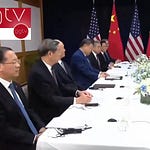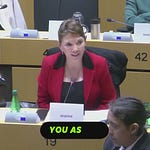The foundation of the modern climate change narrative traces back to a set of documents and models developed and promoted by a group called the Club of Rome. A central piece in this effort was the book The Limits to Growth, which used early computer modeling to simulate the consequences of unchecked population growth and industrialisation. This project, carried out at MIT with backing from the Club of Rome, produced a model that predicted economic and ecological collapse by the mid-21st century if trends continued. The model was later popularized and used to justify sweeping global initiatives framed as necessary for survival. Over time, the same narrative has been repackaged and expanded under different banners, from sustainability to climate emergency, often without questioning the original assumptions or motivations.
Key figures involved in this project, including Jay Forrester and later Club of Rome members, advanced a view that the Earth’s systems could only be managed through centralised global coordination. This evolved into the frameworks that later became Agenda 21 and Agenda 2030. These documents promoted the restructuring of global governance in the name of managing environmental risks. What started as population and pollution models quickly turned into policy blueprints for population control, economic regulation, and social engineering. The belief was that only international institutions with centralised authority could enforce the behavioral changes needed to "save the planet." This required not just technical solutions, but deep cultural shifts, shifts that would be managed from the top down.
In The First Global Revolution, another Club of Rome publication, the authors wrote that in searching for a new unifying threat, they settled on issues like pollution, global warming, and water shortages, problems that, while real in varying degrees, were also ideal for centralizing power. The document states that these issues would be blamed on human intervention, which would in turn require a global solution. This was not about discovery. It was about constructing a rationale for permanent, institutionalised control. They did not deny the need for a catalyst to unite the public behind global regulation, they openly stated it. And yet these origins are rarely mentioned when media and political leaders reference climate change policy.
Over the last several decades, climate change has evolved into a pillar of global governance policy. Political structures from the United Nations to national legislatures have accepted the crisis framework without real public debate about its foundations. The same institutions that push these narratives also benefit from expanded authority, funding, and influence. Meanwhile, platforms for dissenting voices are limited. Whether by social pressure, professional risk, or outright censorship, those who question the basis or intent of the climate agenda are pushed to the margins. At the same time, the public is barraged with messaging that crisis is imminent, irreversible, and entirely the fault of human behavior, specifically, Western consumption and lifestyle.
The model is simple, construct a crisis that cannot be directly measured or falsified by the average person, amplify it through global media networks, and use it to justify restructuring society in ways that centralise power. And when the crisis doesn't unfold exactly as predicted, the answer is not to reassess the model, it’s to double down, insist that the danger was narrowly avoided thanks to earlier intervention, and call for more restrictions. This is how a political and corporate class entrenches itself permanently without having to face accountability.
What’s left is a managed perception of reality. Environmental risks exist, but the use of those risks as tools for global political engineering is not organic or democratic. It is directed by institutions with clear interests in consolidation. With coordination between legacy media, transnational finance, and intergovernmental agencies, a single message dominates: the planet is dying, and the only answer is centralised control. Dissent is not debated, and is outright dismissed. And the structure is protected by force, but with narrative, by shaping how people understand their problems and what they believe must be done about them. People are fooled into believing there science behind it. This is power wrapped in the language of crisis.
If you think my voice should be heard louder then PLEASE support by becoming a paid subscriber. I have minimal overheads, no sponsors to sell myself or soul to, no bosses who tell me what to write (or NOT write), or staff I have to pay. I’m here for your raw, straight, and dedicated analyses. Your support is appreciated. Thank you.
buymeacoffee.com/ggtv










